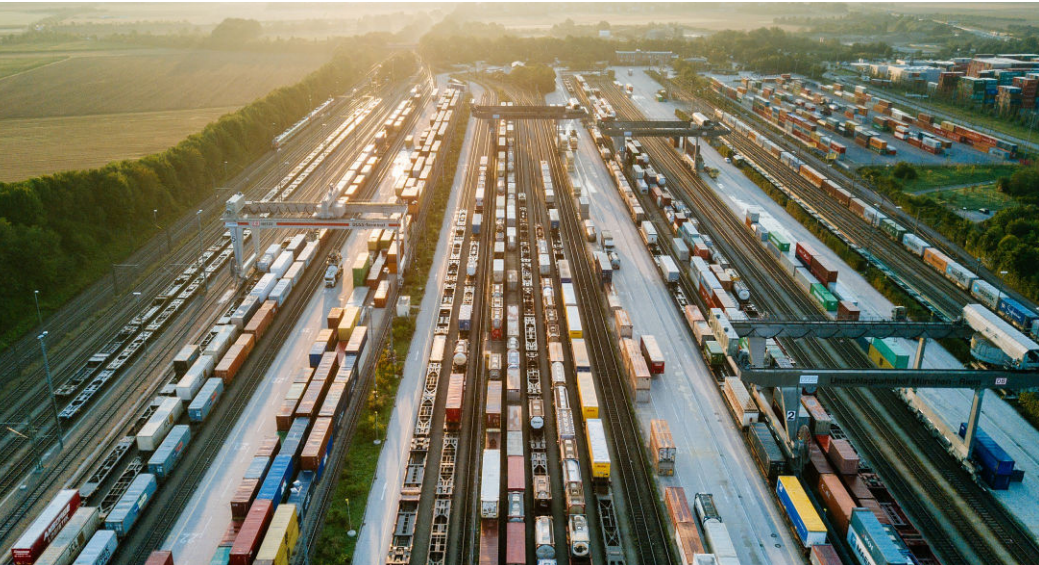
As Market Access Eases, Transport and Logistics Sector Investment is at the Core of Africa’s Economic Renaissance
By Muoki Musila
Accelerating Trade Goods Mobility
Kenya Airways has expanded its operations along a new cargo flight between Sharjan in the United Kingdom Emirates and Somalia’s Mogadishu with plans to serve Dubai, Jeddah, Riyadh, Dakar, Lagos, N’Djamena, Mumbai, Freetown, and Monrovia in the cards. This move is anticipated to cut costs and transit times, a factor that has often impaired goods and people transport and logistics in Africa. This is a single node in an industry that requires investment in upgraded ports, warehouses, and processes amid demand growth to aid in Africa’s economic transformation.
“The engagement of the private sector can headline the creation of international standard-compliant infrastructure to open up the continent to increased business and foreign investment.”
The transport and logistics industry in Africa has a critical role in enhancing the acceleration of intra-African trade and increasing investment and export activity. This underlines the selection of the industry as a target area among three others in the private sector engagement action plan between the African Continental Free Trade Area (AfCFTA) and the World Economic Forum. As the AfCFTA single market aspirations take off, the demand for logistics and transport services and efficiency is expected to skyrocket as trade barriers and import costs are lowered. Thus, businesses are keen on understanding how investments into the sector will enhance integration and further connection into the target large continental market.
Projected Intra-Trade Takeoff
Targeting 55 countries and a 1.3 billion people single market, the AfCFTA is the largest free trade area in the world and as such necessitates a thriving transport and logistic sector to meet demand and supply gaps. With AfCFTA taking effect, intra-African freight demand is projected to increase by 28% creating a need for an additional 2 million trucks, 100,000 rail wagons, 250 aircraft, and over 100 vessels by 2030. Private sector investment in the industry is therefore anticipated to aid in reducing the continent’s dependency on imports with a current estimated $36.8 billion per year on freight transportation.

The engagement of the private sector, with companies such as DHL and Agility committing investments in the sector, will prop the ability of the sector to anticipate and meet the expected demand. Thus, with the AfCFTA courting the right candidates, initiatives can further support SMEs, enhance trade efficiency, and enhance accelerated foreign investments into the sector. Put into perspective, DHL’s GoTrade initiative is seeking to drive inclusive and sustainable economic development through trade facilitation and SME capacity development. This is by working with experts and customs organizations to identify bottlenecks and reduce administrative handles, processing times, and compliance costs to accelerate intra-African trade.
Stimulating Business Access to Africa
Continued collaboration between the private sector and AfCFTA in growing the sector is set to increase access to regional markets. This relationship will enhance the streamlining of trade barriers reduction in tariffs, and the harmonization of regulations across African markets. This enhanced access to regional markets creates economies of scale, allowing businesses to reach a larger customer base and expand their operations. As a result, increased market access under AfCFTA encourages foreign direct investment (FDI) by offering businesses the opportunity to capitalize on the growing demand within Africa’s integrated market.
African traders, particularly SMEs and multinationals can expect the simplification of bureaucratic processes, reduction in red tape, and enhanced transparency in regulatory frameworks. This can consequently create smoother market entry for businesses, particularly small and medium enterprises (SMEs), lowering barriers to entry and attracting more FDI to the continent.
Efforts by the private sector, including DHL, Agility, and DP world under the AfCFTA-WEF action plan is set to further demystify entrance to the targeted single African market. Continued collaborative efforts between the private sector and AfCFTA can provide informational resources, guidance, and mentorship programs to assist businesses in navigating the complexities of entering African markets. By demystifying the market entry process, businesses are better equipped to make informed decisions and capitalize on investment opportunities, thus boosting FDI inflows.
The engagement of the private sector can headline the creation of international standard-compliant infrastructure to open up the continent to increased business and foreign investment. This is a necessary and sufficient factor for enhancing connectivity within Africa and for improving the efficiency of supply chain logistics. This not only facilitates trade and commerce but also instills confidence in investors by demonstrating a commitment to creating a conducive business environment. Improved infrastructure attracts FDI by reducing operational costs and mitigating logistical challenges associated with doing business in Africa.
Collaborative efforts between the private sector and AfCFTA can promote regulatory harmonization, legal protections, and fiscal incentives that create a familiar and enabling environment for investors. By aligning policies with international best practices and ensuring legal certainty, businesses are more likely to perceive Africa as an attractive investment destination. This fosters confidence among investors and encourages FDI inflows, driving economic growth and development across the continent.
Actualizing Investment in the Sector
The private sector engagement action plan brings together various institutions in the sector including Invest Africa, Chatham House Africa, Investment Promotion Agencies, the World Economic Forum, and the AfCFTA secretariat. With the secretariat getting a complete buy-in of these partners, the sector can be revolutionized to spearhead an intra-African trade renaissance. However, the place of public-private dialogue and planning to create a lasting impact in the sector is urgently needed.
In courting the private sector, it is not lost on the AfCFTA secretariat on the need to align sector aspirations with the target partner company’s broader strategy to leverage expertise to effectively unlock economic growth on the continent. A well-connected network of roads, railways, and freight corridors will remain a critical necessity for the industry if the continent is to realize the goal of facilitating greater trade volumes effectively and efficiently.
Muoki Musila is an Kenyan based economist. These are the writer’s own opinions and do not necessarily reflect the viewpoints of Liberty Sparks. Do you want to publish in this space? Contact our editors at [email protected] for further clarification.



